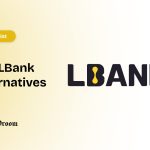The gaming industry is one of the prominent sectors experiencing a disruptive virtual transformation, leveraging advanced technologies including the Metaverse and Web3. Games have always been an alluring pastime for various age groups, and Metaverse gaming is a lucrative aspect of game development, introducing a whole new concept where users socialize and play in a virtual playground with enhanced visual and audio features.
- What is the Metaverse
- Metaverse Gaming
- Examples of Immersive Metaverse Games
- Modern Technologies That Enable MetaVerse Gaming
- 3D Modeling
- Internet of Things (IoT)
- Cryptocurrency and Blockchain
- Decentralization
- Augmented Reality (AR) and Virtual Reality (VR)
- Features of Metaverse Gaming Platforms
- Concerns About Metaverse Gaming
- Data Protection and Security
- Regulatory Concerns
- Scalability
- Content Moderation and Social Morality
- Community Management
- Benefits of Metaverse Gaming
- Conclusion
- Frequently Asked Questions (FAQs)
The Metaverse, beyond the hype, is a fusion of physical and digital—phygital—and is changing the gaming landscape from mundane to captivating.
In this article, we will explore the revolutionary impact of the Metaverse on traditional gaming platforms, its benefits, and growing concerns.
What is the Metaverse
The Metaverse is a network of virtual platforms—playgrounds and collaborative spaces—infused with 3D features and other innovative technologies to create an immersive experience for users. It is often described as an evolution of the internet, leveraging decentralization and 3D rendering.
Built on principles of automation and mobilization, synchronized virtual worlds offer scalability while instilling an individual sense of presence, promoting collaboration, and ensuring the immutability of data. This appeared to be an impossible feat in previous years until the advent of platforms like Decentraland and Meta. A shared virtual ecosystem, accessed with VR and AR devices, is currently reforming important areas of life, and the gaming industry is at the forefront.
Metaverse Gaming
Gaming within the Metaverse is focused on a more captivating and three-dimensional experience, fused with cryptographic features like tokenization and NFTs, along with an enhanced user interface. While VR and AR technologies are always available options, Metaverse gaming platforms can offer near-life experiences without specialized tools. For example, Metaverse platforms like Meta offer their services on mobile devices.
To learn all there is to know about Web3 gaming, check out this detailed guide by DroomDroom.
The integration of the Metaverse within the gaming cyberspace is completely reinventing the way players engage within these online environments. Prior to the age of the decentralized internet, games held no financial commitments and were less interactive. NFTs and cryptocurrencies within the gaming landscape significantly change traditional gaming. Players can pay and earn while having a more interactive gaming experience.
Also, with interoperability in the gaming cyberspace, gamers can move their avatars and in-game assets across other platforms. For example, the Metaverse gaming industry is estimated to reach $1,500 billion in revenue, which explains Meta, formerly Facebook, investing up to $10 billion in its VR and Horizon Worlds projects. Enabling the surge is the use of AR, VR, and other technologies to create a futuristic gaming landscape and experience. Content ownership and real trading are some real-life features infused within the space, creating close-to-life experiences.
Examples of Immersive Metaverse Games
Epic Games
This is the creator of Fortnite, which was released in 2017 and provides a digital experience for both developers and non-creatives by supporting a virtual event space where users can attend concerts and parties. Cutting across brands like Sony and Microsoft, Epic Games has made commendable moves to incorporate Web3 features like NFTs and crypto within a gaming infrastructure. Unlike other platforms, it maintains that the gaming experience comes first and everything else is secondary.
Axie Infinity
This is developed by Sky Mavis and released in 2018, offers a 3D extensive virtual playground where users can groom and train their virtual pets, called Axies, before either trading them or setting them to battle other players. This platform has its cryptocurrency, AXS, which, unfortunately, due to hacks, lost some of its value. However, the platform continues to offer an immersive gaming experience to its users.
SandBox
Sandbox is a user-generated platform that allows users to create customizable avatars and own virtual content. The platform offers three products: VoxEdit, Marketplace, and Game Maker. VoxEdit is a 3D modeling tool for replicating real-world items like vehicles, lands, and animals in virtual space. You can also trade these items on the Marketplace with the platform’s currency, Sand, and develop 3D games on the Game Maker without using code.
Alien Worlds
launched in 2020, offers mining features. You can mine Trilium, which is the in-game currency, and you can vote on its governance depending on how much of the currency you have. It also allows players to own lands across the six planets in the game while battling other players and earning tokens as rewards.
Modern Technologies That Enable MetaVerse Gaming
3D Modeling
Modeling online playgrounds with 3D reconstruction is not a new concept in game development, but it has taken a more interesting and exciting path. By closely replicating real-world assets on-chain, it creates a relatable setting and experience for users, encouraging the demand for more iterations. 3D reconstruction transcends static 2D imaging by creating an in-depth focus, capturing the virtual structures from different viewpoints. Leveraging shading and lighting techniques, captivating lifelike structures are created and represented in the Metaverse.
Internet of Things (IoT)
The Internet, as we know it, is a seabed of treasures; the vital elements just need to be harvested and refined. In a decentralized internet like the Metaverse, clear and accurate extracted data is crucial, and IoT plays a huge role in demystifying complexity, creating an easy-to-use workflow. With web-based devices and a network of connected computers, a user-focused virtual platform is built with less effort and minimal strain. Information harvested from integrated tools like sensors is used to closely and more efficiently replicate 3D models of real-world assets and landscapes on virtual machines.
Cryptocurrency and Blockchain
As previously mentioned, the concept of the Metaverse is grounded in the idea of a decentralized internet. Incorporating blockchain technologies introduces a myriad of possibilities, such as the ability to own and trade virtual properties across platforms. Ownership of assets can be traced, ensuring transparency and accountability. Data protection and security are enhanced due to the immutability and anonymity that the technology offers. In-game experiences are further enriched and promote real value transfer through cryptocurrency and NFTs, allowing players to trade in-game assets for value.
Decentralization
The goal of a shared, evolved internet where users can collaborate and play is rooted in decentralization. Platforms like Roblox empower developers within their network to build their own digital spaces and avatars, fostering creativity and collective advancement. Most Metaverse projects are supported by communities and DAO governance rules that are voted on by the community members.
Augmented Reality (AR) and Virtual Reality (VR)
Augmented Reality and Virtual Reality are essential technologies for providing a comprehensive experience for users and players. High-tech goggles and headsets are used to navigate the Metaverse. Notable corporations like Google and SpaceX have invested in these technological assets. These tools are equipped with complex computing and amplified sensors to simulate real-life scenarios for users. Visual and audio elements allow users to have a fully immersive experience.
Features of Metaverse Gaming Platforms
Play-to-Earn
Unlike the older generation of gaming platforms, decentralized games are not solely for entertainment and leisure. With real trading features, players earn value by participating in online tournaments and winning rare in-game assets. Known as play-to-earn, most platforms like Axie Infinity and Roblox allow players to engage in activities that earn them money within the space. Some of these platforms are also backed by their own cryptocurrencies, which serve as rewards and incentives for gamers to purchase assets within the gaming platform or withdraw as fiat.
Mixed Reality
Fondly referred to as “phygital,” the underlying principle behind Metaverse gaming involves a fusion of physical and virtual worlds. Users can seamlessly transition from text groups to AI-powered gaming landscapes. By collaborating with real-life brands like Nike, players have access to real-life assets in virtual worlds, enhancing the overall gaming experience.
Movable Game Assets
Metaverse utilizes a fascinating online architecture that enables gaming assets, including NFTs, avatars, and rare collectibles, to be moved across platforms. However, this capability is subject to gaming rules.
Interactive Features
Metaverse provides an immersive gaming experience for players, allowing them to go beyond conventional gaming. Players can explore digital worlds and interact with other users as they would in real life. VR and sensory tools contribute to creating a near-to-life experience. From trading assets online to participating in virtual events and engaging in online battles, there seems to be no limit to the possibilities within this dynamic environment.
Flexible Gaming Experience
In addition to collaborative advantages, some platforms allow users to build virtual spaces within their platform, enabling them to create and own their own content and assets. This flexibility enhances the overall gaming experience within the Metaverse.
Concerns About Metaverse Gaming
The entirety of the Metaverse is undoubtedly revolutionary and hosts a multitude of possibilities. However, some concerns are yet to be addressed for this technology to be maximized.
Data Protection and Security
Data is undeniably the fuel running the decentralized internet, and users share more than necessary to engage in the Metaverse space. This information is susceptible to cyber thefts and hacks, making cybersecurity and user privacy crucial for ensuring user safety and brand loyalty. While players often stay within platforms and products supported by renowned companies, there is a possibility that this information could be sold to big corporations. Additionally, blockchain technologies can be prone to hacks, as seen in the Axie Infinity security breach where millions were stolen, leading to a drastic fall in the platform’s cryptocurrency peak price.
Regulatory Concerns
Without legal control and rules governing areas such as implications of intellectual property, asset ownership, and money laundering, the Metaverse is prone to unregulated crimes. Without necessary restrictions, it could become a breeding ground for cyberstalking, revenge porn, child porn, and terrorist activities. Although governance rules exist on these platforms to ensure safety, proper auditing and compliance are needed.
Scalability
Like most projects leveraging blockchain, scalability concerns exist. As more users and adopters onboard the Metaverse, it would require complex programming and high computational power to continue supporting several users and different activities without sacrificing functionality and security.
Content Moderation and Social Morality
Proper content moderation could pose a challenging factor for Metaverse integration on gaming platforms. User-generated content would have to go through a proper validation process to ensure that such content does not support immorality and offensive elements. For example, certain bans should be placed on hate words, necessitating a more coordinated method for content management.
Community Management
To ensure a mutually respectful and collaborative environment, effective communication and interaction channels are required. Sanctions and other systems are vital to control toxic behavior and violence among players, as this could threaten brand loyalty and lead to more severe outcomes.
Benefits of Metaverse Gaming
Creativity
The Metaverse provides opportunities to create impressive virtual spaces and innovative solutions, improving entertainment and ushering in a dynamic gaming era. Enhanced user interfaces and other exciting mechanics introduce a world of possibilities in an explosive virtual environment.
Wider Audience
As a web of connected virtual event places, the Metaverse improves user participation and attracts a new audience. Most Metaverse companies leverage strategic collaborations and partnerships to increase their customer reach. This creates more opportunities, enhances social interaction, and ensures growth within the gaming industry as new members can participate regardless of demography and location.
Education and Learning
Corporations like Microsoft and Nvidia support remote learning and research by offering spaces for collaborative learning and teamwork to achieve common goals in distinctive areas of interest. Users can attend sessions and meetings as their avatars and make meaningful contributions, potentially improving industrial and economic well-being. Metaverse games allow for effective training and testing outcomes.
New Source of Revenue
Introducing NFTs and crypto technology in the gaming industry provides a new stream of income for users and offers an innovative way to monetize gaming experiences. This includes mining tokens as incentives, in-game advertising, and trading rare gaming collectibles. Additionally, designers and developers can create and monetize their own content and virtual spaces, adding to the overall economic ecosystem within the Metaverse.
Conclusion
The future of Metaverse gaming brings both exciting opportunities and challenges. It transforms gaming from entertainment to a potential income stream and inclusive space. Leveraging economic models and user interfaces is key. Understanding underlying technologies and navigating challenges is crucial for companies to maximize Metaverse gaming’s potential.
Frequently Asked Questions (FAQs)
What Is the Metaverse, and How Does It Impact the Gaming Industry?
The Metaverse is a virtual shared space that combines social interaction, online gaming, and augmented reality. It transforms the gaming industry by introducing immersive virtual experiences.
How Do NFTs and Cryptocurrencies Contribute to the Metaverse Gaming Economy?
NFTs and cryptocurrencies play a crucial role by creating new revenue streams, enabling in-game purchases, and providing opportunities for players to earn real value.
What Are the Primary Challenges the Metaverse Faces, Particularly in Terms of Data Protection and Security?
Data protection and security are concerns in the Metaverse, with user information vulnerable to cyber theft. Recent incidents, like the Axie Infinity breach, highlight the need for robust cybersecurity measures.
In What Ways Does the Metaverse Contribute to Education and Learning?
Companies like Microsoft and Nvidia leverage the Metaverse for collaborative learning, offering spaces for remote learning and teamwork. Avatars attending sessions can make meaningful contributions, potentially improving various industries.
How Does Decentralization Impact the Metaverse, and Why Is It Essential?
Decentralization is integral to the Metaverse, fostering collaboration and creativity. It allows users to build virtual spaces, own assets, and participate in governance, ensuring a more democratic and user-centric environment.
How Does the Metaverse Address Content Moderation and Social Morality on Gaming Platforms?
Effective content moderation is a challenge in the Metaverse, requiring validation processes to ensure user-generated content aligns with ethical standards. This includes implementing bans on offensive elements and hate speech.


















